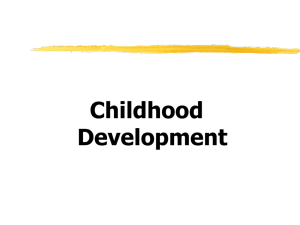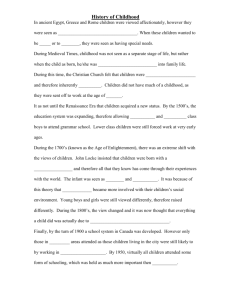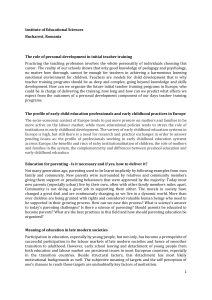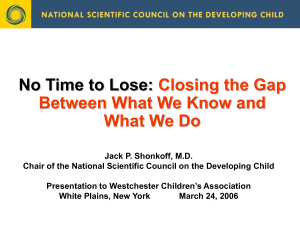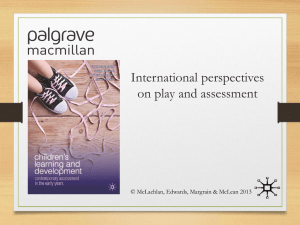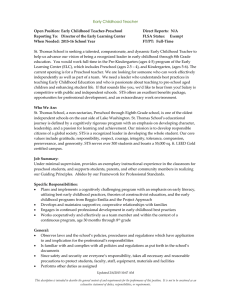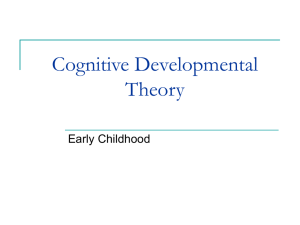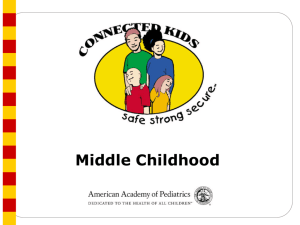Chapter 6 questions
advertisement
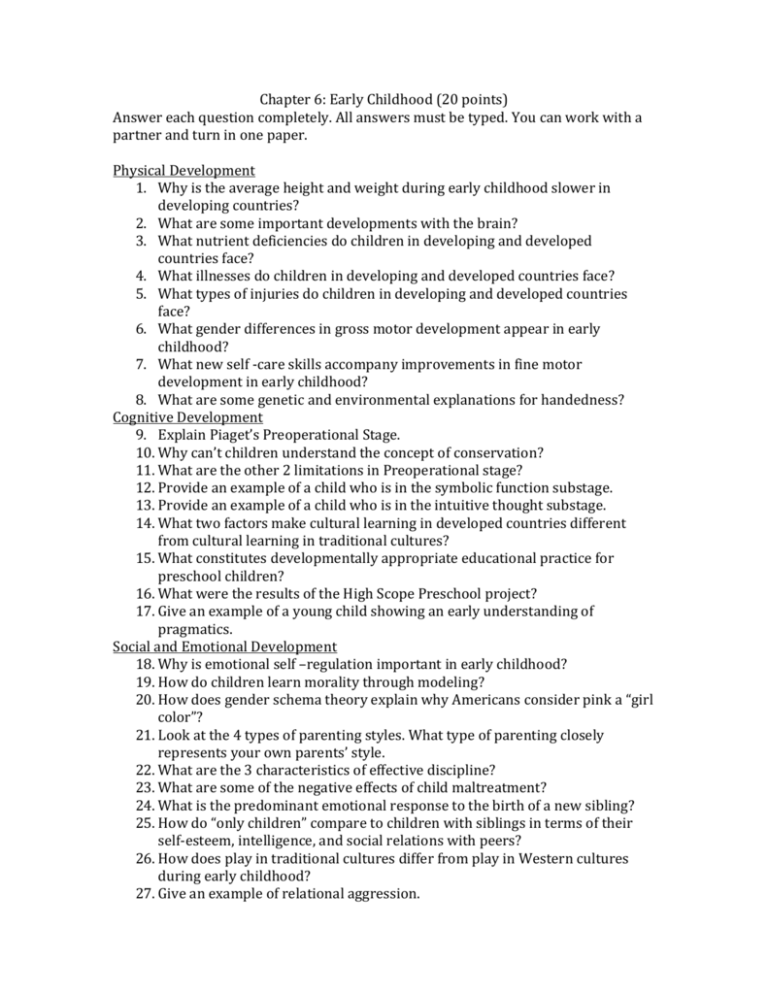
Chapter 6: Early Childhood (20 points) Answer each question completely. All answers must be typed. You can work with a partner and turn in one paper. Physical Development 1. Why is the average height and weight during early childhood slower in developing countries? 2. What are some important developments with the brain? 3. What nutrient deficiencies do children in developing and developed countries face? 4. What illnesses do children in developing and developed countries face? 5. What types of injuries do children in developing and developed countries face? 6. What gender differences in gross motor development appear in early childhood? 7. What new self -care skills accompany improvements in fine motor development in early childhood? 8. What are some genetic and environmental explanations for handedness? Cognitive Development 9. Explain Piaget’s Preoperational Stage. 10. Why can’t children understand the concept of conservation? 11. What are the other 2 limitations in Preoperational stage? 12. Provide an example of a child who is in the symbolic function substage. 13. Provide an example of a child who is in the intuitive thought substage. 14. What two factors make cultural learning in developed countries different from cultural learning in traditional cultures? 15. What constitutes developmentally appropriate educational practice for preschool children? 16. What were the results of the High Scope Preschool project? 17. Give an example of a young child showing an early understanding of pragmatics. Social and Emotional Development 18. Why is emotional self –regulation important in early childhood? 19. How do children learn morality through modeling? 20. How does gender schema theory explain why Americans consider pink a “girl color”? 21. Look at the 4 types of parenting styles. What type of parenting closely represents your own parents’ style. 22. What are the 3 characteristics of effective discipline? 23. What are some of the negative effects of child maltreatment? 24. What is the predominant emotional response to the birth of a new sibling? 25. How do “only children” compare to children with siblings in terms of their self-esteem, intelligence, and social relations with peers? 26. How does play in traditional cultures differ from play in Western cultures during early childhood? 27. Give an example of relational aggression. 28. How are friends different from peers? 29. Why is early childhood an especially important time for the development of responses to music?




